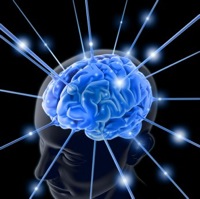“The glory of God is intelligence, or, in other words, light and truth.” (D&C 93:36)
This oft-quoted verse is known well by most members of the church, and is even BYU’s motto. But despite the verse’s clear definition, concept of “glory” still seems fairly abstract, and is often difficult to conceptualize in a manner that is relevant to us.
Understanding Glory
 The association of “glory” with “light” seems to be the easiest first step towards understanding. For much of western history, artists have depicted heavenly figures with halos, to display their glory. These halos were usually light colored discs behind the subject’s head, symbolizing light, and then evolved into the floating loop we see on modern caricatures of angels. Scriptural accounts of heavenly apparitions also indicate the presence of actual brightness and light in association with glory. This seems fully reasonable, given the addendum “in other words, light and truth.”
The association of “glory” with “light” seems to be the easiest first step towards understanding. For much of western history, artists have depicted heavenly figures with halos, to display their glory. These halos were usually light colored discs behind the subject’s head, symbolizing light, and then evolved into the floating loop we see on modern caricatures of angels. Scriptural accounts of heavenly apparitions also indicate the presence of actual brightness and light in association with glory. This seems fully reasonable, given the addendum “in other words, light and truth.”
But the second part—the “truth”—along with the original definition of “intelligence” is not as easily visualized, or even conceptualized, for that matter. Nevertheless, the word “glory” continues to be used without inhibition when describing diety, angels, or the life hereafter.
We all have our own unique mental images of what the next life is like. Many members refer to this scripture to formulate their concept of what the celestial world has in store:
“And that same sociality which exists among us here will exist among us there, only it will be coupled with eternal glory, which glory we do not now enjoy.” (D&C 130:2, emphasis added)
With that in mind, the imagination constructs a world that is just like the one we live in now: residences, lives, family, friends, where everyone interacts with one another the same way that we do now on earth. The only difference? We’re “coupled with eternal glory.” What does that mean? Hmmm… We glow in the dark?
Intelligence
 If we think about this a bit further, I believe we will be led to a different conclusion. Glory, which this last scripture indicates is the only distinguishing feature between this world and the next, is more than just emitting light; it is intelligence.
If we think about this a bit further, I believe we will be led to a different conclusion. Glory, which this last scripture indicates is the only distinguishing feature between this world and the next, is more than just emitting light; it is intelligence.
So does that mean that everyone glows in the dark and is a whole lot smarter too? Intelligence does indeed mean a capacity to logically think, but I believe in this case, it is meant to be parsed the way it is in the acronym “CIA,” meaning that intelligence is essentially information—data—that is consciously received and comprehended by an external agent. This idea seems to be articulated in D&C 88:49: “The light shineth in darkness, and the darkness comprehendeth it not;” The idea is that “light” is information, and when it is comprehended, it becomes, in conjunction with its receiver, “intelligence,” which is the glory of God.
This relates to our discussion of the nature of the afterlife in that we will be “coupled with eternal glory,” (read intelligence) “which glory we do not now enjoy.” Reading it this way, it seems that the exalted society will process and manage information(intelligence) in a way that is much different than the way we do here.
The Information Age
 At this point, one may say “and the rest, we’ll figure out later!” and shelve the issue with the other “mysteries of eternity.” However, there may be a few ways that we can start to wrap our brains around this concept of intelligence, especially when understood in terms of information.
At this point, one may say “and the rest, we’ll figure out later!” and shelve the issue with the other “mysteries of eternity.” However, there may be a few ways that we can start to wrap our brains around this concept of intelligence, especially when understood in terms of information.
As we span through the epochs of the human saga, we find the stone age, the bronze age, and a number of other ages that lead us to the industrial age. A far distant textbook might very well classify the round year 2000 as the beginning of a new age: the information age.
Given our understanding that “intelligence” in the spiritual sense is “information” coupled with “comprehension,” it should be clear that analyzing the mechanics of what defines our “information age” might shed some interesting light on our understanding of this “glory” that we will enjoy in the hereafter.
We now live in an age where information is processed in a way that has never previously been possible. The internet, e-mail, wireless networks, blackberries, iphones, blogs, wikis, social networks; all these things are engines that enable the transfer, storage, and processing of data, information, and intelligence. We may be able to use these technologies as a conceptual model for our spiritual understanding of intelligence.
Implications of Omniscience
 Let’s step back for a moment and review the concept of information/intelligence/knowledge as it relates to deity. Jacob exclaimed:
Let’s step back for a moment and review the concept of information/intelligence/knowledge as it relates to deity. Jacob exclaimed:
“O how great the holiness of our God! For he knoweth all things, and there is not anything save he knows it.” (2 Nephi 9:20)
Omniscience is a fundamental attribute that we associate with God. And in this case, it is important to remember that “God” refers not simply to Heavenly Father, but to the collective whole of the Godhead, who each are omniscient. I noted the implications of this in a previous post on the trinity. Quoting myself:
“If we truly accept that God, Jesus, and the Holy Ghost are in fact all-knowing, that would mean that one could not think a thought without the others instantly knowing it. One could not acquire or process any piece of information without the others doing the same.”
The idea of synchronized minds is admittedly uncomfortable; it undermines our innate sense of individuality and privacy. However, unless we impose a watered-down definition of “omniscience,” it is inescapable. And as it relates directly to intelligence, it can be classified as fundamental to God’s glory.
“And he that receiveth my Father receiveth my Father’s kingdom; therefore all that my Father hath shall be given unto him.” (D&C 84: 38, emphasis added)
The promise to those who attain exaltation unavoidably includes receiving this glory, of which omniscience—and all that it implies—is a part.
Following this train of thought, our concept of the afterlife morphs into something increasingly unimaginable—the previous “all’s the same except we glow in dark” model quickly falls by the wayside.
Data Networks
 This brings us back to the concept of the information age, and how it might help us make heads and tails of this. Anyone who has used the internet (this means you) knows the basics of how a network works. One computer terminal is connected to another, which is connected to another (or several ) and information can be transferred from one terminal to the next.
This brings us back to the concept of the information age, and how it might help us make heads and tails of this. Anyone who has used the internet (this means you) knows the basics of how a network works. One computer terminal is connected to another, which is connected to another (or several ) and information can be transferred from one terminal to the next.
There are many kinds of networks: decentralized (peer-to-peer) centralized (hub-spoke) and various combinations in between, altered by reconfiguring the placement and the network load of various nodes.
When properly configured, information created or collected by one node can almost instantly be accessed by all other nodes on the network. (Think about your facebook newsfeed.) Your phone, home computer, work computer, and iPod can all be “omniscient” with regards to your email account: given they are all syncronized. Additionally, certain processing tasks can be broken down and distributed across the network, allowing multiple nodes to be working in concert on essentially a different part of the same thing. (Tangentially, this model of distributed computing has proved to be incredibly effective at providing the output and performance of a “supercomputer” at a fraction of the cost and technology.) So in terms of “knowing” and “doing,” a data network provides a framework in which the processing of intelligence can be performed in unprecedented ways.
Gospel Networks
 “Come unto me” is the call from the Savior, inviting one and all to partake of his salvation. How is this done? The Sunday school answer gives us “Faith, Repentance, Baptism, and the Gift of the Holy Ghost.” All this can be encapsulated in the concept of a covenant. A covenant, in the gospel sense, is a connection—a relationship, or a partnership—that creates an avenue of one kind or another between the involved parties.
“Come unto me” is the call from the Savior, inviting one and all to partake of his salvation. How is this done? The Sunday school answer gives us “Faith, Repentance, Baptism, and the Gift of the Holy Ghost.” All this can be encapsulated in the concept of a covenant. A covenant, in the gospel sense, is a connection—a relationship, or a partnership—that creates an avenue of one kind or another between the involved parties.
“And this is my gospel—repentance and baptism by water, and then cometh the baptism of fire and the Holy Ghost, even the Comforter, which showeth all things, and teacheth the peaceable things of the kingdom.” (D&C 39:6)
The gift of the Holy Ghost—the preliminary result of the covenant—acts as a conduit of intelligence, becoming a connection to enlightenment and knowledge. Continued adherence to the gospel covenant yields a continuation of this flow of illumination; christlike attributes are inherited and developed, and spiritual growth is ongoing. As multiple people establish this connection with Christ, and enjoy its effects, they come to be more and more like one another (as they all become more like Christ). This seems to be a valid part of the plan of salvation. Jesus prayed:
“And the glory which thou gavest me I have given them; that they may be one, even as we are one.” (John 17: 22)
Again, the crucial element in forming a spiritual link is a covenant. Christ becomes the central node, and mankind may attach themselves to him to become heirs of salvation—heirs of his glory.
The Temple and the Sealing Power
 The symbolism associated with covenants seems to clearly confirm this. One of the ways that temple covenants are symbolized is by a literal connection between two parties. Once this connection is validated, the agent gains access to that which symbolizes celestial glory. While there are a number of symbolic steps involved in the process, the true question asked when moving from one phase of existence to the next is “are you connected to Christ?” If the answer is yes, the transfer of glory is initiated.
The symbolism associated with covenants seems to clearly confirm this. One of the ways that temple covenants are symbolized is by a literal connection between two parties. Once this connection is validated, the agent gains access to that which symbolizes celestial glory. While there are a number of symbolic steps involved in the process, the true question asked when moving from one phase of existence to the next is “are you connected to Christ?” If the answer is yes, the transfer of glory is initiated.
One of the temple’s primary purposes is essentially to create a massive social network throughout all phases of humanity. Husbands covenant with wives; children are born in that covenant; deceased persons enter into covenants vicariously, families are sealed together via covenants, and, at the center of all these lateral covenants, is Christ, the central figure, to which all persons covenant with.
Joseph Smith speaks of a “welding together of dispensations” that is part of process of being “made perfect.” (D&C 128: 18) The ordinances of gospel, especially in terms of how they relate to connections with God and to connections with others, attest to the fact that our salvation— our access to God’s glory—is founded on the network model.
Data Applications
 The application of the principles behind gospel networks is ever present in the data world. For a terminal to have any use, or to fulfill any of its potential, it must be connected to other nodes; in many cases, the central node.
The application of the principles behind gospel networks is ever present in the data world. For a terminal to have any use, or to fulfill any of its potential, it must be connected to other nodes; in many cases, the central node.
Data transfers are initiated by network self-identification (providing a name,) and are negotiated by going through the proper ports, using the proper protocols, and presenting the correct encryption tokens. When the connection is validated, the transfer begins, and the receiving node progressively becomes endowed with the data (information, intelligence, glory) that the sending node offers.
When multiples nodes, all working in concert using the same protocols, ports, and encryption tokens (read celestial law) the individual nodes become far more useful and powerful than if they were standing alone.
The Celestial World
 This new insight should cause us to rework our concept of the afterlife. The Mormon doctrine of post-millennial earth offers some relevant hints that may help shape our vision:
This new insight should cause us to rework our concept of the afterlife. The Mormon doctrine of post-millennial earth offers some relevant hints that may help shape our vision:
“This earth, in its sanctified and immortal state, will be made like unto crystal and will be a Urim and Thummim to the inhabitants who dwell thereon, whereby all things pertaining to an inferior kingdom, or all kingdoms of a lower order, will be manifest to those who dwell on it; and this earth will be Christ’s.” (D&C 130:9)
Unfortunately, we’re not told much about what a giant earth-sized Urim and Thummim is (except the abstract “light and perfection”) but thankfully, Brother Brigham comes to the rescue with a more detailed explanation:
“This earth, when it becomes purified and sanctified, or celestialized, will become like a sea of glass; and a person, by looking into it, can know things past, present, and to come; though none but celestialized beings can enjoy this privilege. They will look into the earth, and the things they desire to know will be exhibited to them, the same as the face is seen by looking into a mirror.” (Journal of Discourses, 9:87.)
It still seems pretty cryptic, but thinking about it in terms of data transfer protocols and security, with the additional perspective about covenants and the celestial law, we might approach a closer level of understanding. Also, the scripture stated that the celestialized earth belongs to Christ; and the description that Brigham Young gives indicated that this celestial earth is the central node through which celestial being access their glory.
Conclusions
Let’s review the scripture from earlier:
“And that same sociality which exists among us here will exist among us there, only it will be coupled with eternal glory, which glory we do not now enjoy.” (D&C 130:2)
Even with an expanded understanding of what might be meant by “coupled with eternal glory,” I don’t know that we’re any closer to coming up with a more accurate concrete concept of the exalted afterlife. One thing is for sure, though, it somehow involves intelligence.
Will we all have synchronized minds? Will the law of consecration expand into communal thoughts and concerns? Will we simply morph in a new-age-ish Universal Mind? How will we avoid being drones on a cloud-computing network? Will there be such things as privacy? What will become of oral and written communication? How will we define individuality? How does the quaint model of “families can be together forever” fit in?
And then there’s the concept of time. Let’s save that one for another day. The bottom line is, the hereafter is still fairly unimaginable; although I do feel safe in dismissing the “same as it is here except we glow in the dark” notion. Until we get an better understanding, I do think that data networks do provide a relevant model that can help us understand the effects of networked intelligence, and the gospel implications that stem therefrom.
And speaking of enlightenment through the network of the glory of God, I find comfort in the Lord’s words:
“The day shall come when you shall comprehend even God, being quickened in him and by him.” (D&C 88: 49)

Comments 15
At-one-ment. I see no fundamental difficulty with submerging our egoistic identities with that of our Heavenly Father, although the model I imagine is somewhat different from your proposal. Part of our problem is that our analogies are still so imperfect, and even our understanding of what constitutes information (I’m sure the Lord has moved beyond our thermodynamic sense of the word).
As I’ve written elsewhere, “Far less of our ego than we suspect is truly who we are, and far more of our potential.”
It is interesting to see the Glory of God as knowledge. This concept could hold true for even those that don’t believe in a Deity.
This is very interesting and puts an understandable concept in place. I have been pondering on the Glory of God, and my thoughts lead me in a path of “intelligence” also representing children. The more covenanted children or intelligences He has, adds to His Glory; and in so doing adds to our glory. D&C 93:22,23,29-30. Which fits into your model of more nodes increases the over all knowledge base of the entire network. Then I wonder if God is all knowing, what knowledge can I possibly add to the network?
Any thoughts?
Ben, you just have to let the guys over at NewCoolThang know about this post. It is right up their alley. Maybe you could even guest post there if you keep on in this vein. One of the most important accounts of glory happens to be found in Joseph Smith History:
When was the last time you saw light “gather”?
I love this concept. It also works with my internet is a Urim and Thummim post. Personally I think the wiki or facebook model of celestial socialization (free and voluntary exchange and expansion) makes more sense than a compulsory Borg-like envelopment of all minds and knowledge.
. . . enjoyed the post, KC Kern. Thanks! On a related note, you might enjoy this article: http://transfigurism.org/documents/transfiguration.pdf
tk, you add the knowledge of your particular experiences or combination of experiences. No one else has lived your exact life.
I’ve come to think that one aspect of Heavenly Father (or exalted beings) is that He sort of lives through his children. Somewhat like how earthly parents get to experience or at least witness and feel the awe and wonder of childhood again when they raise children.
One aspect of our mortal life is that one lifetime is not enough to experience what the world has to offer. However, if God is acutely aware of each of our individual lives, knowing the very thoughts and feelings of our heart, almost (almost) “inhabiting” (not the right word, someone help me out) us through His Spirit, he gets to sort of vicariously experience everything we experience. I mean “inhabiting” in that He not only can “see through our eyes” but likely can “feel through our heart” in a parallel manner.
If Jesus can feel our pains and sorrows, wouldn’t he also be able to feel our joys? And if Jesus can feel those things, can’t or wouldn’t or didn’t Heavenly father?
What was Heavenly Father in His mortal probation? A shepherd? A farmer? A business-man? A soldier? A jet pilot? Did he die in infancy? Though us, he experiences all of those through our mortal eyes and hearts.
After this mortal life, those who are raised in a highest-degree Celestial resurrection then get to go to “god school”. (JS said that most of exaltation is learned on the other side of the veil.) There they learn, not as mortals but as eternal glorified beings, basically “everything.” After that school, as they people planets with their spirit children, giving them mortal bodies, then it’s through their children that they can experience the mortal awe and wonder of being shepherds, jet pilots and astronauts.
Supposing our Father Elohim was a farmer in his mortal probration. Then He probably learned about making and flying jets and space rockets in god school. But through people like Verner Von Braun, Chuck Yeager, John Glenn and Deiter Uchtdorf, Heavenly Father got to vicariously (is that the right word?) experience the joys and awe and wonder of actually doing it as a mortal.
And even if one person may not seem to make much of a contribution, if nothing else, every person of every generation plays a part in laying the foundation for the next generation. The great accomplishments of the current generation owe a great debt to every preceeding generation that created a society or world or pool of knowledge in which those accomplishments could be achieved.
This is all very interesting “in light” (pun intended) of a part of an article on space.com today:
“In addition to wowing viewers, images like this provide astronomers with information about Jupiter’s upper atmosphere. That’s because as Ganymede passes behind the giant planet, it reflects sunlight, which then passes through Jupiter’s atmosphere. Imprinted on that light is information about the gas giant’s atmosphere, which yields clues about the properties of Jupiter’s high-altitude haze above the cloud tops.”
http://www.space.com/scienceastronomy/081218-hubble-ganymede.html
I was struck by the statement that information was “imprinted” on the light.
That is fascinating verbiage, Whoever.
I am struck also by how our pre-pre-mortal existence is described – as being “intelligences”. I have wondered for most of my life about what exactly that means, and the best I have come up with so far in my own mind is the following:
If the glory of God is intelligence, and if intelligence is characterized as “light and truth”, perhaps “intelligences” are that eternal element that is capaple of seeing and understanding (“being enlightened by”) truth.
In this construct, I can picture God “enlightening” intelligences somehow and turning them into “spirits” that then can be clothed in other material for a time until they are ready to be “enlightened” fully in an immortal and “glorified” state – especially when all descriptions of God’s glory we have center on how He shines with light. I have no idea about the details of that evolutionary process, but the concept absolutely fascinates me.
There is some intimate connection between light and energy and godliness that I don’t come close to understanding yet, but contemplating the possibilities is exciting – as long as I don’t obsess and get dogmatic about it.
Pingback: Points of Interest, #39 « Mind, Soul, and Body
The bottom line is, the hereafter is still fairly unimaginable; although I do feel safe in dismissing the “same as it is here except we glow in the dark” notion.
Amen to that.
Excellent, KC. Very similar to what I’ve called “one moral will.” It’s easy to picture “Godhead” in this sense being any number of persons and thus you have one God (and only one God) while also a plurality of gods.
So does anyone have a short explanation in two or three sentences of what Stephen was seeing when he looked up into Heaven and saw the “glory of God”? It’s for my seminary students, high school age. . .
#12 – Darrah, I would hazard a guess as one of two things – or perhaps the combination thereof:
1) Light and truth – a shining luminescence that translates as all that is good and true and holy;
2) Jesus standing at the right hand of God symbolizing that someone whom others viewed merely as a man could be “glorified” and stand with God – and, further extrapolating, that His intercessory prayer means all who are His may be seen similarly in the future (“one” in the way He prayed they might be).
For a different look at “glory”, you might be interested in the following:
http://mormonmatters.org/2008/07/07/praise-honor-glory-be-to-god/
This is really amazing topic, thank you for posting.
Joel Reyes